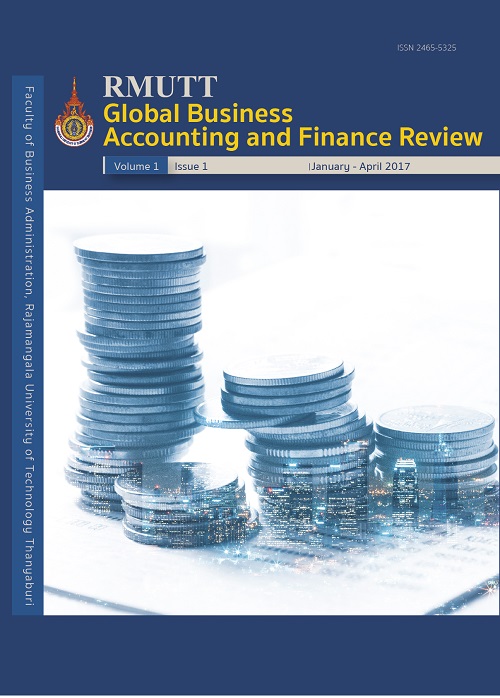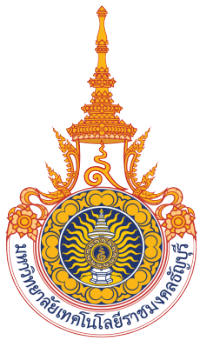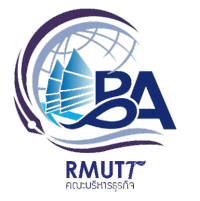Analysis Factors Affecting an Application to Knowledge of SMEs
Keywords:
Knowledge Usage, SMEs, Path AnalysisAbstract
The purpose of this article is to analyze factor which affects toward application of small and medium enterprise (SME) knowledge in Pathum Thani province, Thailand. The research question is focusing on what factors affecting using knowledge of SMEs. Seventy SMEs data were collected as a sample of this research. The quota sampling was used as a mean to define sample size for each district in Pathum Thani province. The snowball method was used as a tool to select samples. The result of factor analysis reduces twelve observe variables to three components of using knowledge management. The regression model indicated that factors affecting toward application of SMEs are: usefulness of knowledge, transfer knowledge to an individual, exchange of knowledge within group, and codify knowledge activities.
References
Ajzen, I. & Fishbein, M. (1980). Understanding attitudes and predicting social behavior. Englewood Cliffs, NJ: Prentice-Hall.
Brooking, A. (1999). Corporate Memories, Strategies for Knowledge Management. Thompson Business Press.
Fiewstone, J. M. (2001). Key issues in knowledge management. Journal of knowledge management consortium international, Knowledge and Innovation: Journal of the KMCI.
Fishbein, M. & Ajzen, I. (1975). Belief, attitude, intention, and behavior: An introduction to theory and research. Reading, MA: Addison-Wesley.
Pathum Thani province. (n.p.) “Pathum Thani”[on-line]. Retrieved June 10, 2016, from: www2.pathumthani.go.th/index.php.
Rémy M., & Caroline B. (2011). A study of knowledge management enablers across countries. Knowledge Management Research & Practice, vol. 9, pp. 17-28.
Sunassee, N. N., & Sewry, D.A., (2002). A Theoretical Framework for Knowledge Management Implementation. Paper presented at the SAICSIT (South African Institute of Computer Scientists and Information Technologists) Annual Conference.
Thai Ministry of Industry. (2002). Ministerial Regulations of the Number of Employed and the Value of Fixed Assets of SME B.E. 2545.Thai government gazette, vol. 119, sec. 93, pp. 17-19, Sep. B.E. 2545.
SMEs Coordination and Services Department, (n,p) OSMEP, SMEs Definition [on-line]. Retrieved July 20, 2016, from http://www.sme.go.th/Pages/Define/Define.aspx.
Uriarate. F.A., Jr., (2008). Introduction to Knowledge Management, ASEAN Foundation, Jakarta, Indonesia.
Valacich, Joseph S. (2012). Information systems today: managing in the digital world/Joe Valacich, Christoph Scheider, 5th ed., Pearson Education, Inc., New Jersey.
Venkatesh V., Morris M.G., Davis G.B., and Davis F.D. (2003). User Acceptance of Information Technology: Toward a Unified View MIS Quarterly, Sep. 2003, Vol. 27, No. 3, pp. 425-478.









